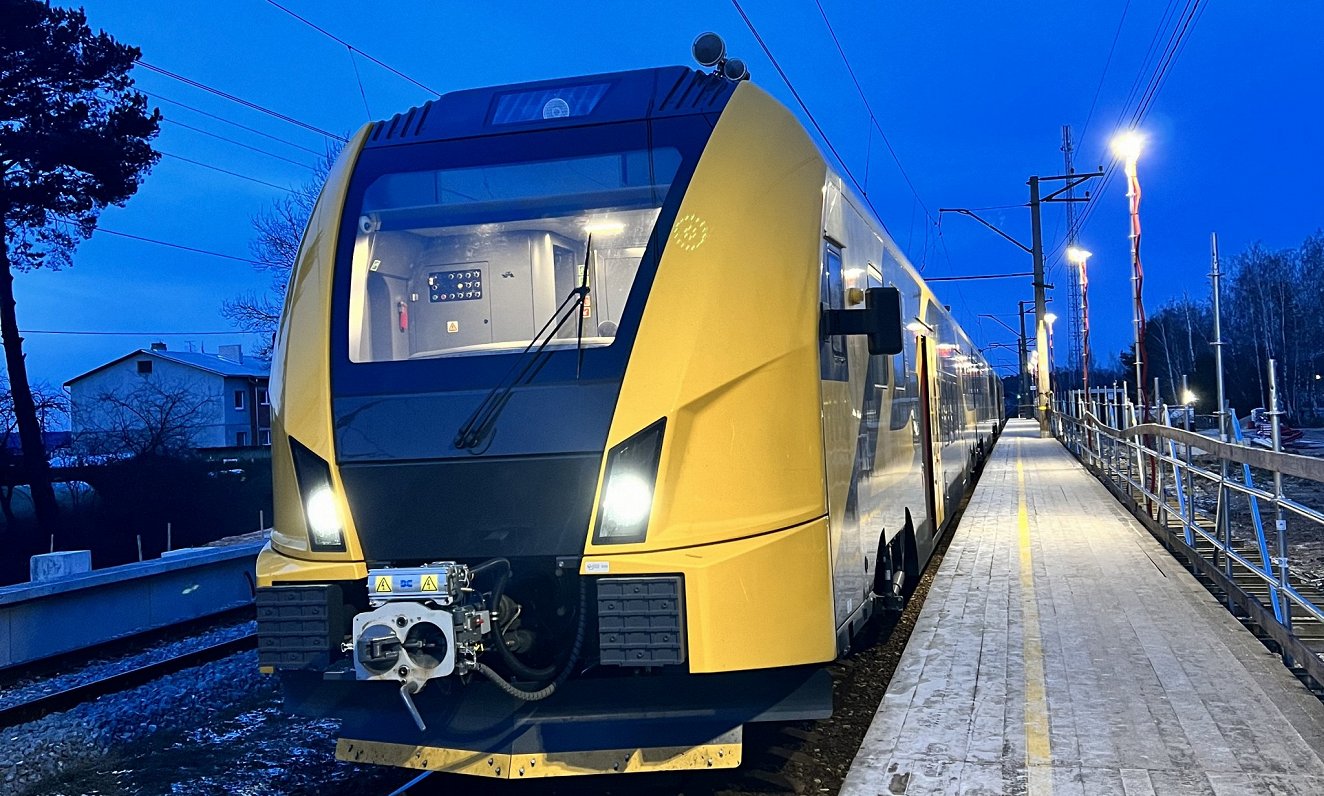Of the 17 trains delivered, eleven have been prepared for transport, but only six are available now to carry passengers as the rest have been identified as having shortcomings.
The deficiencies must be rectified by Skoda Group.
On Tuesday morning, trains were delayed by up to three hours on the Rīga-Skulte line. Latvian Radio correspondent Viktors Demidovs was among those inconvenienced by the delay.
"I saw the new electric train at the station Garciems. I pushed the button to open the door but nothing happened. The conductor opened it manually. There was complete darkness in the train and climate control was not working either. [..] It turned out the train had been standing there for half an hour."
Vivi representative Sigita Zviedre said there had been an issue with the power collector and the train's battery had run out.
Vivi also stated that Latvia is not unique in finding deficiencies with new trains after putting them in traffic and said that Lithuania and Estonia had faced similar issues at the beginning.
Latvian passenger rail carrier is set to receive all 32 electric trains fully ready for the Vivi train passenger service by mid-2024. Each of them consists of four carriages. One electric train is 109 meters long. Each train has seats for 436 passengers and standing spots for 454 passengers. The new trains are aligned with platforms to improve accessibility.
The design speed of the new trains is up to 160 km/h (currently 120 km/h). The maximum speed will be able to be developed where railway infrastructure will allow it.
The total cost of the whole new electric train project is EUR 257,889 million and the purchase of 23 new electric train configurations is planned with co-financing from the Cohesion Fund of the European Union of EUR 114,211 million.
At first, it was promised that passengers would be able to board the new trains by the end of summer, then only in autumn. An agreement was originally concluded between Latvian state rail company JSC "Pasažieru vilciens" (Passenger train) and the Czech company "Škoda Vagonka" for the purchase of 32 new electric trains back in 2019, though that came off the back of a tender that started all the way back in 2015. First the Covid pandemic and then the war in Ukraine delayed delivery.





























